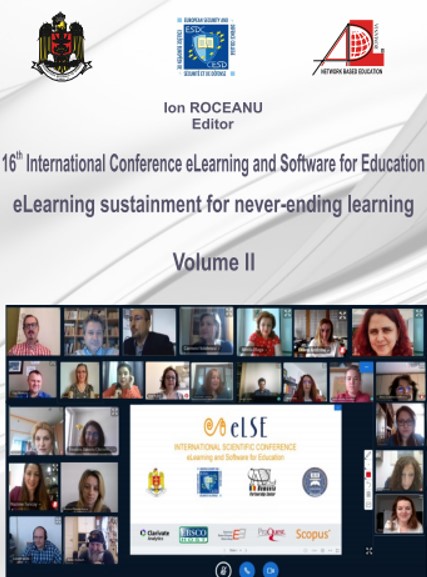A.R.E.A. - AUGMENTED REALITY EDUCATIONAL ALBUM FOR EXPERIENTIAL LEARNING
A.R.E.A. - AUGMENTED REALITY EDUCATIONAL ALBUM FOR EXPERIENTIAL LEARNING
Author(s): Tudor Mihai UrsachiSubject(s): School education, ICT Information and Communications Technologies, Distance learning / e-learning, Pedagogy
Published by: Carol I National Defence University Publishing House
Keywords: immersive education; augmented reality; school subjects; mobile application;
Summary/Abstract: The current paper proposes a new approach of experiential learning, by bringing together the concept of immersive education and an emergent technology: augmented reality. The immersive education tends to resolve the main drawback of traditional education, which is the limited experimentation, and with the help of the evolving technologies, the students can understand the school subjects in a different manner. At present, the theoretical part plays the major role in education, while the experimentation is often ignored or treated superficially, especially when it comes to progressive domains, such as engineering or informatics. By bringing the immersive education closer to students and teachers, they might be able to experience the most important aspects of this domain, in real-time, without sacrificing the good parts of traditional education. The approach presented in my paper is accomplished through an augmented reality system called AREA, which combines the digital and nondigital worlds, in order to foster an interactive and educative way of discovering the inventions that have revolutionized the modern world, thus making students curious about the evolution of modern technology. Using augmented reality, students have the chance to experiment the connection between learning and practicing and how they co-work in order to achieve great success. The application was tested on a group of high school students and on a group of adults specialized on engineering and marketing domains, the results being very intriguing. Besides presenting my system and the way it can be integrated to overcome the current educational challenges (e.g. lack of practical exercises), we also analyzed the use of other existing augmented reality systems, from various domains, that offer similar experiences to the one accomplished by AREA.
Journal: Conference proceedings of »eLearning and Software for Education« (eLSE)
- Issue Year: 16/2020
- Issue No: 02
- Page Range: 504-510
- Page Count: 7
- Language: English

